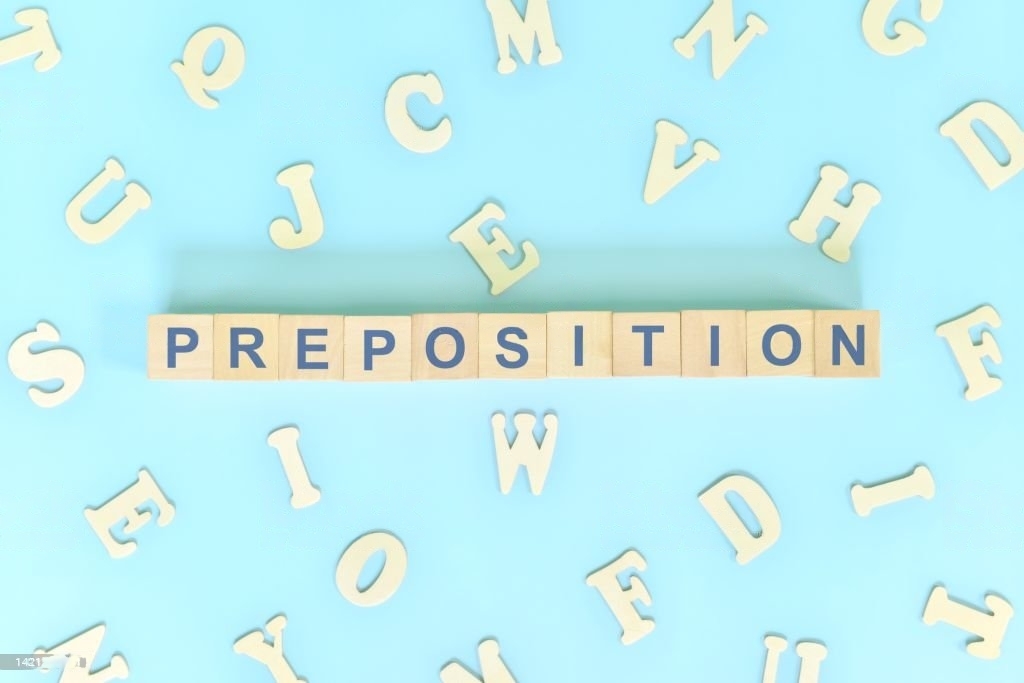Ah, the mesmerizing dance of learning a new language! Picture this: you’re in the charming streets of Paris, confidently ordering your favorite croissant, only to realize that you’ve just asked for a “crocodile” instead. We’ve all been there, navigating the intricate labyrinth of French grammar, stumbling upon its whimsical twists and turns. Fear not, fellow language explorer! Join us as we embark on a delightful journey through the most entertaining blunders English speakers make while traversing the terrain of French grammar. From gender mix-ups that could paint your table red, to verb tenses that turn yesterday into tomorrow – we’re here to unravel the Most Common French Grammar Mistakes & How to fix them, one hiccup at a time. Ready to learn and level up your linguistic game? Let’s dive in! 🇫🇷🎉
- Using the Wrong Gender as one of the most common French Grammar mistakes
- Using the Wrong Conjugation, another most common French Grammar mistake
- Misusing Articles: 3rd most common French Grammar mistake in the list
- Using the Wrong Preposition: 4th most common French Grammar mistake
- Making Pronoun Mistakes: 5th most common French Grammar mistake
- Making Verb Tense Mistakes: 6th most common French Grammar mistake
- Making Agreement Mistakes: 7th most common French Grammar mistake
- Making Spelling Mistakes: 8th most common French Grammar mistake
- Making Pronunciation Mistakes: 9th most common French Grammar mistake
- Making Vocabulary Mistakes: 10th most common French Grammar mistake
Using the Wrong Gender as one of the most common French Grammar mistakes
French nouns are divided into two genders: masculine and feminine. The gender of a noun is determined by its meaning, and using the correct gender is crucial. For instance:
- Wrong: Le table est rouge. (The table is red.)
- Correct: La table est rouge.
- Wrong: J’ai acheté une livre. (I bought a book.)
- Correct: J’ai acheté un livre.
Additional Examples:
- Wrong: Le voiture est rapide. (The car is fast.)
- Correct: La voiture est rapide.
- Wrong: J’ai mangé le pomme. (I ate the apple.)
- Correct: J’ai mangé la pomme.
Using the Wrong Conjugation, another most common French Grammar mistake
French verbs change based on tense, mood, and person. Precise conjugation is necessary to convey the desired meaning. For instance, the verb “parler” (to speak) is conjugated as follows in the present tense:
- Wrong: Je parles français.
- Correct: Je parle français.
- Wrong: Tu parle français.
- Correct: Tu parles français.
Additional Examples:
- Wrong: Elle finit son devoir. (She finishes her homework.)
- Correct: Elle finit son devoir.
- Wrong: Ils comprendez la leçon. (They understand the lesson.)
- Correct: Ils comprennent la leçon.
Misusing Articles: 3rd most common French Grammar mistake in the list
French articles indicate noun gender and number. There are definite, indefinite, and partitive articles. Accurate usage is vital to prevent errors.
- Wrong: Je vais à l’école.
- Correct: Je vais à l’école.
- Wrong: Je mange une pomme.
- Correct: Je mange une pomme.
Additional Examples:
- Wrong: J’adore le musique. (I love music.)
- Correct: J’adore la musique.
- Wrong: Elle cherche un emploi. (She’s looking for a job.)
- Correct: Elle cherche un emploi.
Using the Wrong Preposition: 4th most common French Grammar mistake
French prepositions establish relationships between words. Picking the right preposition is key.
- Wrong: Je vais à la maison.
- Correct: Je vais à la maison.
- Wrong: Je suis en le magasin.
- Correct: Je suis dans le magasin.
Additional Examples:
- Wrong: Le chat est sur la la table. (The cat is on the table.)
- Correct: Le chat est sur la table.
- Wrong: Il habite à Paris depuis la cinq ans. (He’s been living in Paris for five years.)
- Correct: Il habite à Paris depuis cinq ans.
Making Pronoun Mistakes: 5th most common French Grammar mistake
French pronouns replace nouns. Using the correct pronoun is essential.
- Wrong: Je parle à lui.
- Correct: Je lui parle.
- Wrong: Tu parles à moi.
- Correct: Tu me parles.
Additional Examples:
- Wrong: Elle aime toi. (She likes you.)
- Correct: Elle t’aime.
- Wrong: Nous voyons ils au cinéma. (We see them at the movies.)
- Correct: Nous les voyons au cinéma.
Making Verb Tense Mistakes: 6th most common French Grammar mistake
French verbs have various tenses to indicate when an action occurred. Using the right tense is crucial.
- Wrong: Je parle français hier.
- Correct: Je parlais français hier.
- Wrong: Tu parles français hier.
- Correct: Tu parlais français hier.
Additional Examples:
- Wrong: Il va au parc ce matin. (He’s going to the park this morning.)
- Correct: Il est allé au parc ce matin.
- Wrong: Nous mangeons déjà. (We already eat.)
- Correct: Nous avons déjà mangé.
Making Agreement Mistakes: 7th most common French Grammar mistake
French adjectives, articles, and pronouns must agree in gender and number with nouns. This rule can be tricky, but these examples help clarify:
- Wrong: La table rouge est beau.
- Correct: La table rouge est belle.
- Wrong: Les chaises bruns sont intelligents.
- Correct: Les chaises brunes sont intelligentes.
Additional Examples:
- Wrong: Le livre intéressant est petits. (The interesting book is small.)
- Correct: Le livre intéressant est petit.
- Wrong: Les garçons intelligent sont fatigué. (The smart boys are tired.)
- Correct: Les garçons intelligents sont fatigués.
Making Spelling Mistakes: 8th most common French Grammar mistake
Accurate spelling is a cornerstone of effective communication in any language, and French is no exception. Here are examples of common spelling mistakes that English speakers often make in French:
- Wrong: J’ai acheté un apareil photo. (I bought a camera.)
- Correct: J’ai acheté un appareil photo.
- Wrong: Elle adore les fleurs colores. (She loves colorful flowers.)
- Correct: Elle adore les fleurs colorées.
Additional Examples:
- Wrong: Nous avons visité un musé. (We visited a museum.)
- Correct: Nous avons visité une musée.
- Wrong: La ciel est bleu en été. (The sky is blue in summer.)
- Correct: Le ciel est bleu en été.
Making Pronunciation Mistakes: 9th most common French Grammar mistake
Pronunciation can significantly impact how well you’re understood. Let’s delve into common pronunciation errors and their corrections:
- Wrong: Je suis fatigue. (I am tired.)
- Correct: Je suis fatigué.
- Wrong: Elle parle tré bien français. (She speaks French very well.)
- Correct: Elle parle très bien français.
Additional Examples:
- Wrong: Le garçon mange du gâteau au chocolat. (The boy is eating chocolate cake.)
- Correct: Le garçon mange du gâteau au chocolat.
- Wrong: Ils sont allay au restaurant. (They went to the restaurant.)
- Correct: Ils sont allés au restaurant.
Making Vocabulary Mistakes: 10th most common French Grammar mistake
Vocabulary errors can lead to misunderstandings. Here are instances where vocabulary mistakes commonly occur, along with the correct phrasing:
- Wrong: Il a mis son chapeau dans le placard. (He put his hat in the closet.)
- Correct: Il a mis son chapeau dans l’armoire.
- Wrong: Nous avons beaucoup de chanceux. (We are very lucky.)
- Correct: Nous avons beaucoup de chance.
Additional Examples:
- Wrong: Mon ami a acheté un pantalon cher. (My friend bought expensive pants.)
- Correct: Mon ami a acheté un pantalon coûteux.
- Wrong: Elle veut devenir un ingénieur. (She wants to become an engineer.)
- Correct: Elle veut devenir une ingénieure.
By familiarizing yourself with these additional examples and honing your skills in these areas, you’ll enhance your French language journey and improve remarkably on these most common French Grammar mistake. Remember, learning a language involves making mistakes, but each mistake brings an opportunity for improvement. Keep practicing and refining your skills, and you’ll master French grammar and communication with time and dedication. Bonne chance (good luck)!
You can have a look at my previous post on how to polish your French conversation in a fun way here!
My works
P.S. Are French verb conjugations nightmarishly hard for you? Or you are someone who like to learn them and practice to perfect your French? Regardless, I have written this book to help fellow learners own French conjugations like a boss!

Here I have:
- Curated a list of 100 most common French verbs with their English meanings
- 10 conjugation forms for each verb
- 200 exercises for you to practice the conjugations you will learn
- 100 beautiful French idioms to impress your crowd.
I really hope you find this book useful and use it whenever you have to quickly revise a bit of verb conjugations

A French Bullet Agenda to help you continue your passion of the language!
I have also created a bilingual bullet agenda to help you with your linguistic journey:). You will be able to jot down:
- Important events
- Monthly weekly objectives
- Practice gratitude
- Your thoughts and priorities
- And even practice French verb conjugations 🙂
Below is a glimpse of the journal interior. I really hope it helps you in your day-to-day life from both the language and personal perspectives! 🙂











Pingback: 10 Most Remarkable French movies you will fall in love with - Speak French like a French!